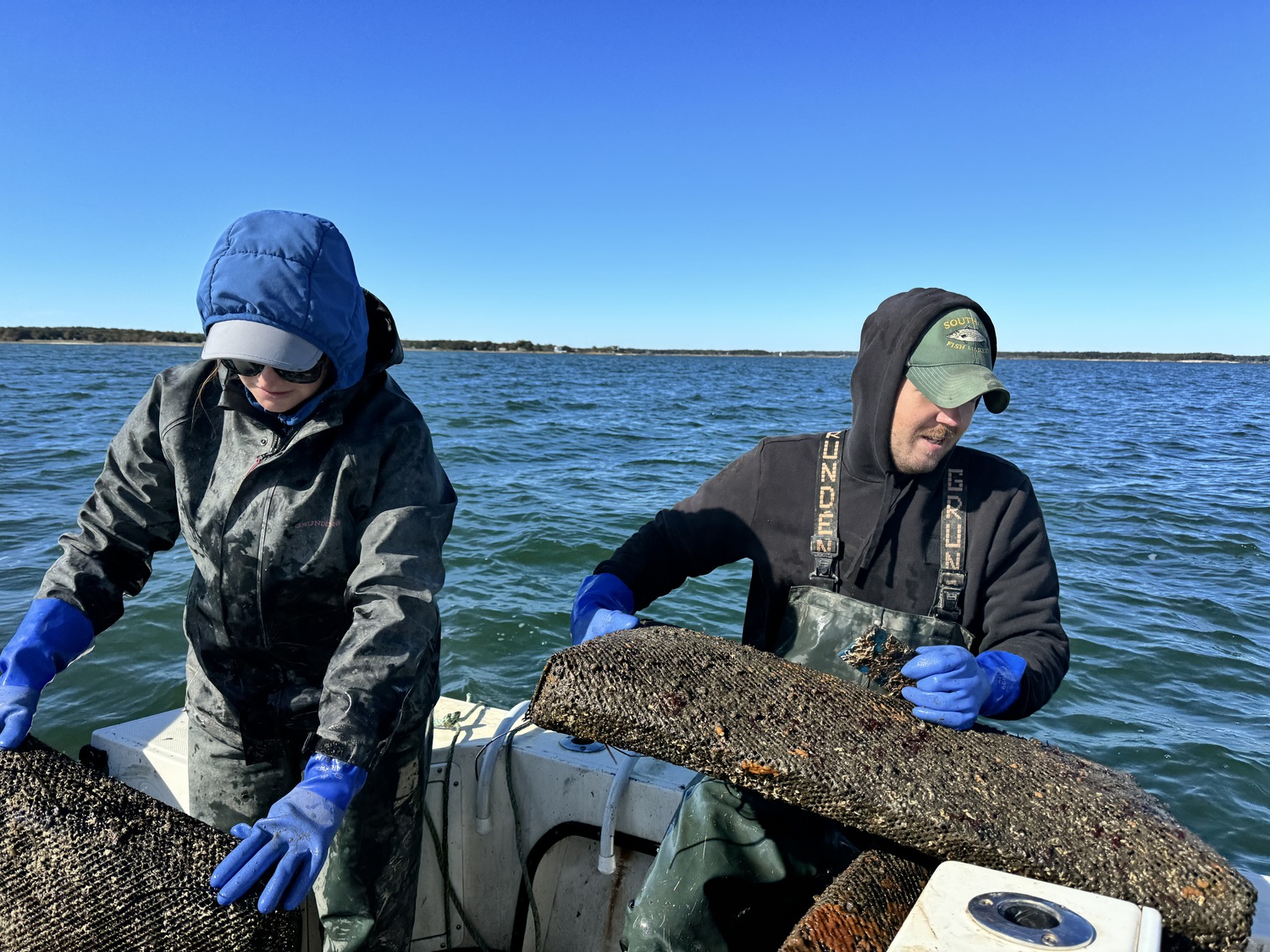
Brooke Del Prete with bags of scallops that marine biologists from the Cornell Cooperative Extension are using to track mortality and survivability rates of various strains of bay scallops in the Peconic Estuary. MICHAEL WRIGHT
Brooke Del Prete and Mike Bunn with bags of scallops that marine biologists from the Cornell Cooperative Extension are using to track mortality and survivability rates of various strains of bay scallops in the Peconic Estuary. MICHAEL WRIGHT
Cornell Cooperative Extension Aquaculture Specialist Harrison Tobi measuring the growth of scallops raised in protective cages in Flanders Bay as part of the CCE Marine Program's efforts to study survivability of different bay scallop lineages in the Peconics, where a parasite and warming waters have caused massive die-offs in recent years. MICHAEL WRIGHT
Peconic bay scallops have died in massive numbers each summer since 2019 and Cornell Cooperative Extension scientists are studying genetic variability in hopes of finding a way to seed the bays with more resilient scallops. MICHAEL WRIGHT
Cornell Cooperative Extension Aquaculture Specialist Harrison Tobi with scallops raised in protective cages in Flanders Bay as part of the CCE Marine Program's efforts to study survivability of different bay scallop lineages in the Peconics, where a parasite and warming waters have caused massive die-offs in recent years. MICHAEL WRIGHT
Cornell Cooperative Extension Aquaculture Specialist Harrison Tobi with scallops raised in protective cages in Flanders Bay as part of the CCE Marine Program's efforts to study survivability of different bay scallop lineages in the Peconics, where a parasite and warming waters have caused massive die-offs in recent years. MICHAEL WRIGHT
Cornell Cooperative Extension Aquaculture Specialist Harrison Tobi with scallops raised in protective cages in Flanders Bay as part of the CCE Marine Program's efforts to study survivability of different bay scallop lineages in the Peconics, where a parasite and warming waters have caused massive die-offs in recent years. MICHAEL WRIGHT
The scientists keep meticulous track of the growth and mortality rates of each strain of scallop raised in separate cages on the bay bottoms at several locations throughout the Peconics. MICHAEL WRIGHT
The scientists keep meticulous track of the growth and mortality rates of each strain of scallop raised in separate cages on the bay bottoms at several locations throughout the Peconics. MICHAEL WRIGHT
Brooke Del Prete and Mike Bunn with bags of scallops that marine biologists from the Cornell Cooperative Extension are using to track mortality and survivability rates of various strains of bay scallops in the Peconic Estuary. MICHAEL WRIGHT
Cornell Cooperative Extension Aquaculture Specialist Harrison Tobi with scallops raised in protective cages in Flanders Bay as part of the CCE Marine Program's efforts to study survivability of different bay scallop lineages in the Peconics, where a parasite and warming waters have caused massive die-offs in recent years. MICHAEL WRIGHT
Cornell Cooperative Extension Aquaculture Specialist Harrison Tobi with scallops raised in protective cages in Flanders Bay as part of the CCE Marine Program's efforts to study survivability of different bay scallop lineages in the Peconics, where a parasite and warming waters have caused massive die-offs in recent years. MICHAEL WRIGHT
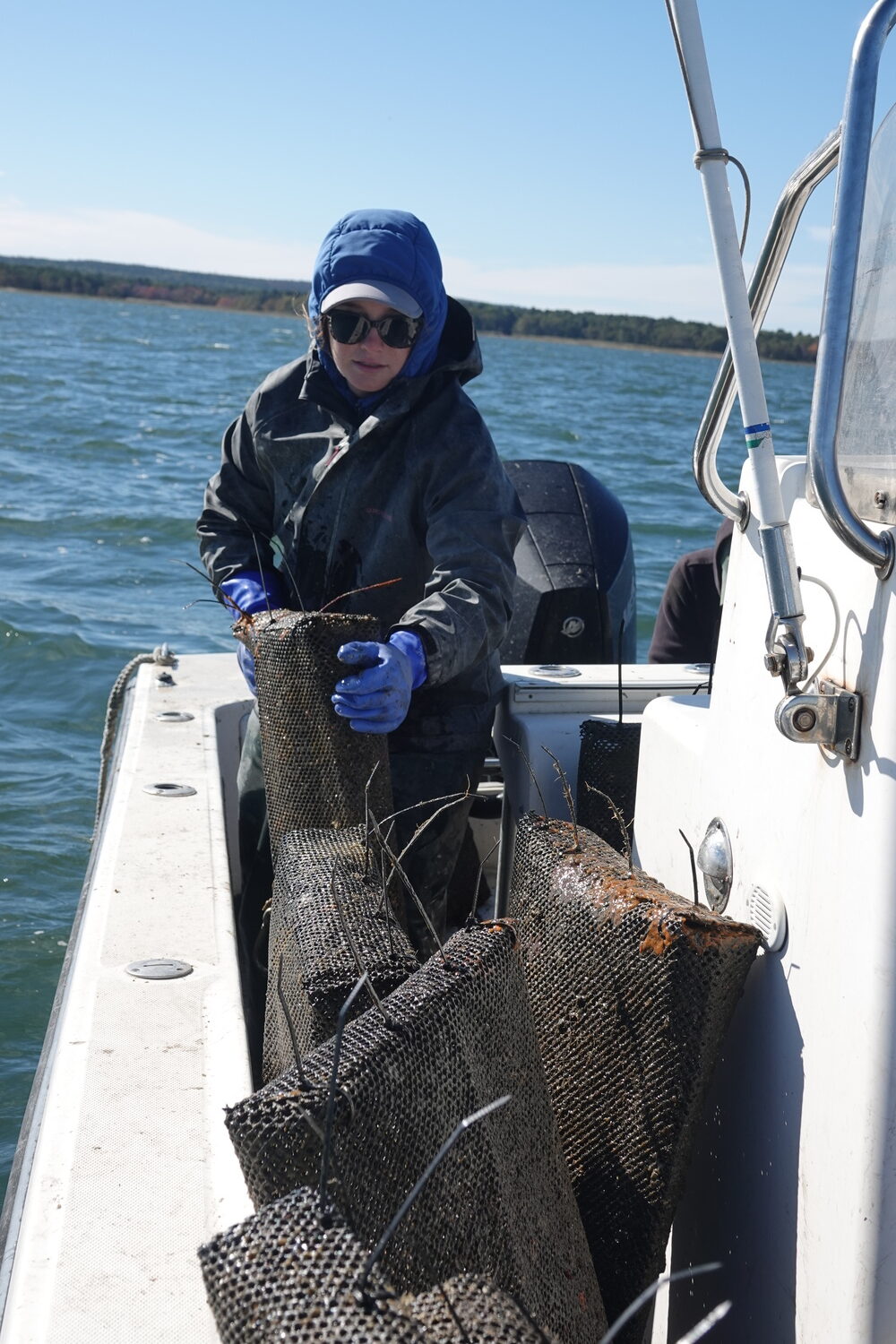
Brooke Del Prete with bags of scallops that marine biologists from the Cornell Cooperative Extension are using to track mortality and survivability rates of various strains of bay scallops in the Peconic Estuary. MICHAEL WRIGHT
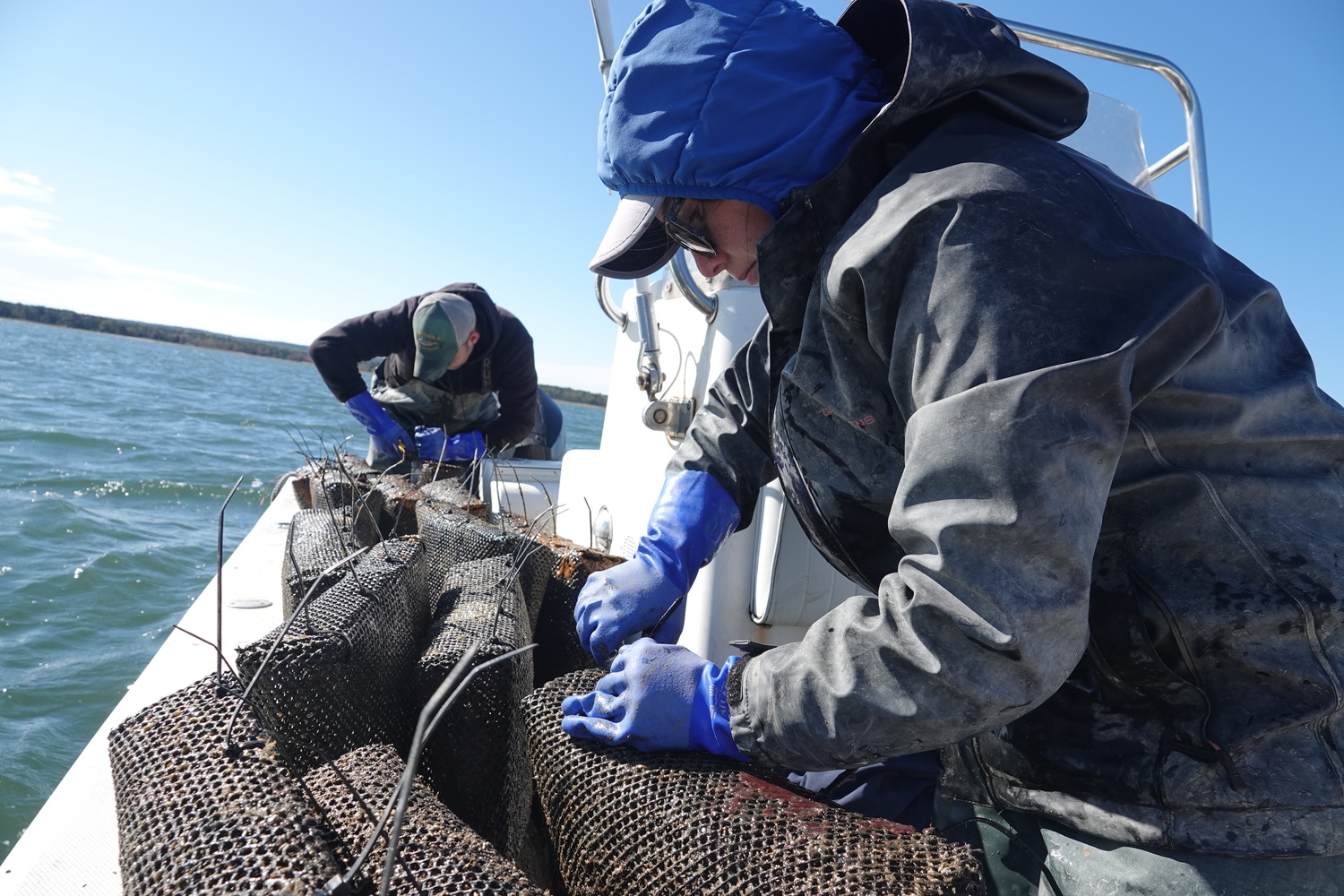
Brooke Del Prete and Mike Bunn with bags of scallops that marine biologists from the Cornell Cooperative Extension are using to track mortality and survivability rates of various strains of bay scallops in the Peconic Estuary. MICHAEL WRIGHT
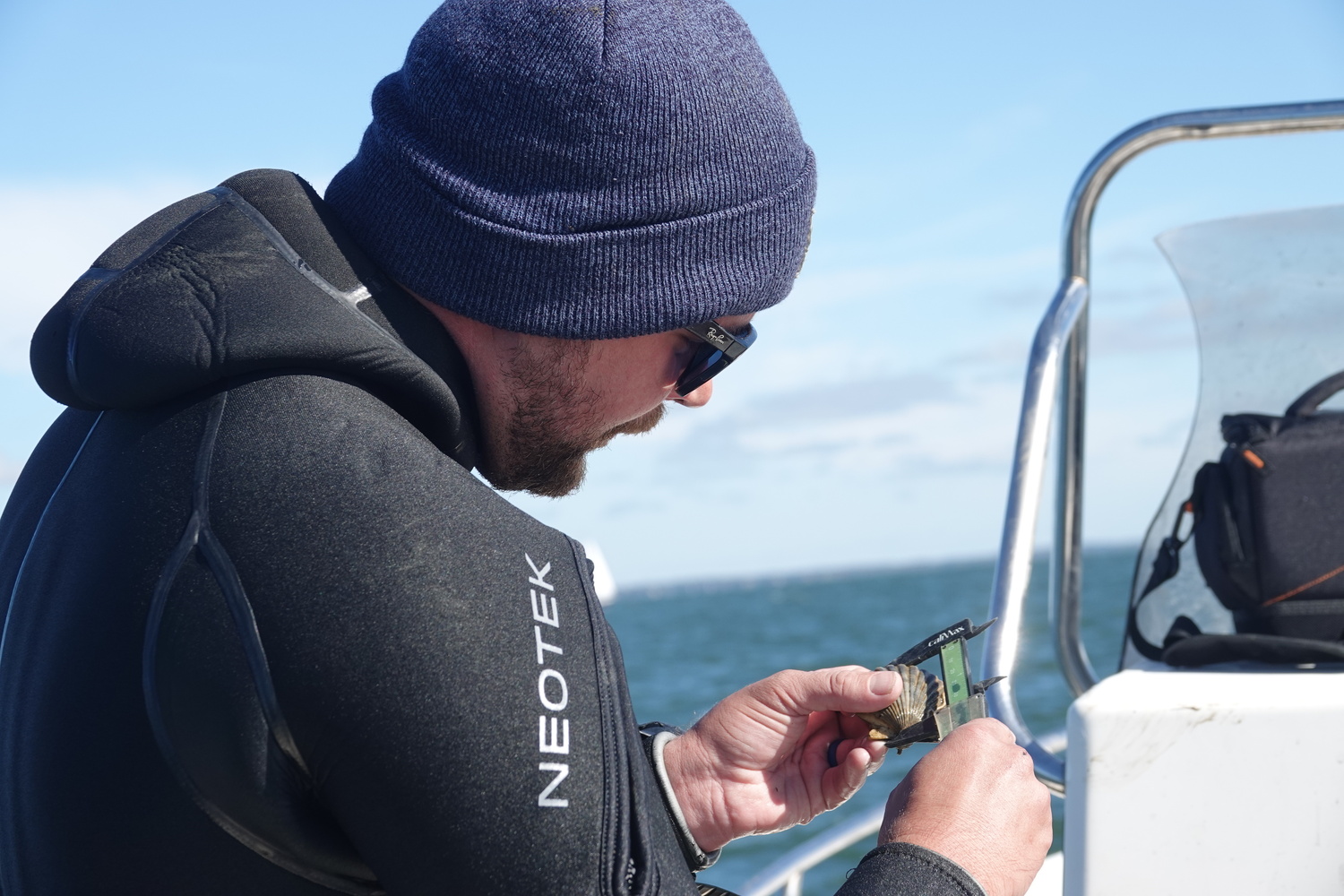
Cornell Cooperative Extension Aquaculture Specialist Harrison Tobi measuring the growth of scallops raised in protective cages in Flanders Bay as part of the CCE Marine Program's efforts to study survivability of different bay scallop lineages in the Peconics, where a parasite and warming waters have caused massive die-offs in recent years. MICHAEL WRIGHT
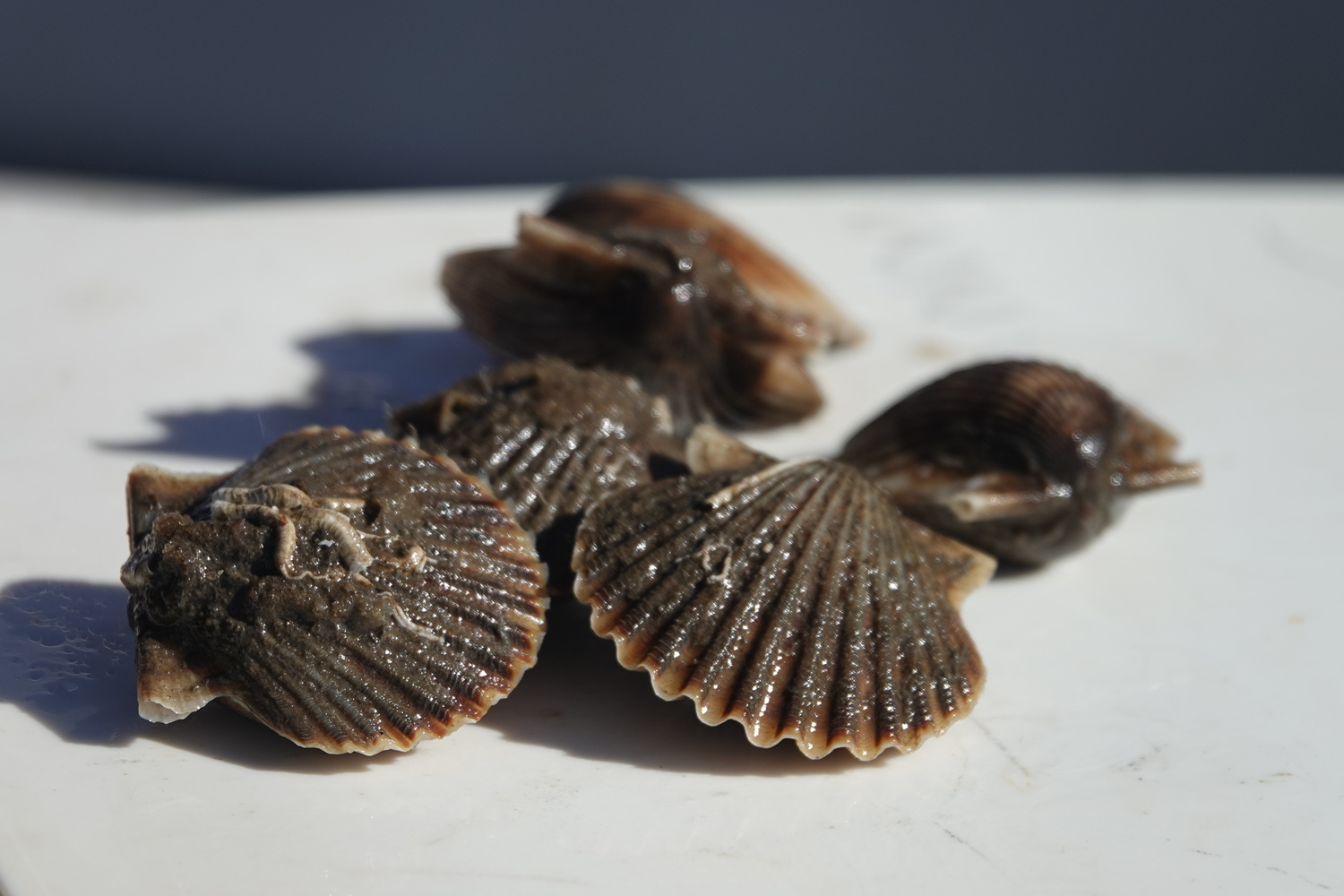
Peconic bay scallops have died in massive numbers each summer since 2019 and Cornell Cooperative Extension scientists are studying genetic variability in hopes of finding a way to seed the bays with more resilient scallops. MICHAEL WRIGHT
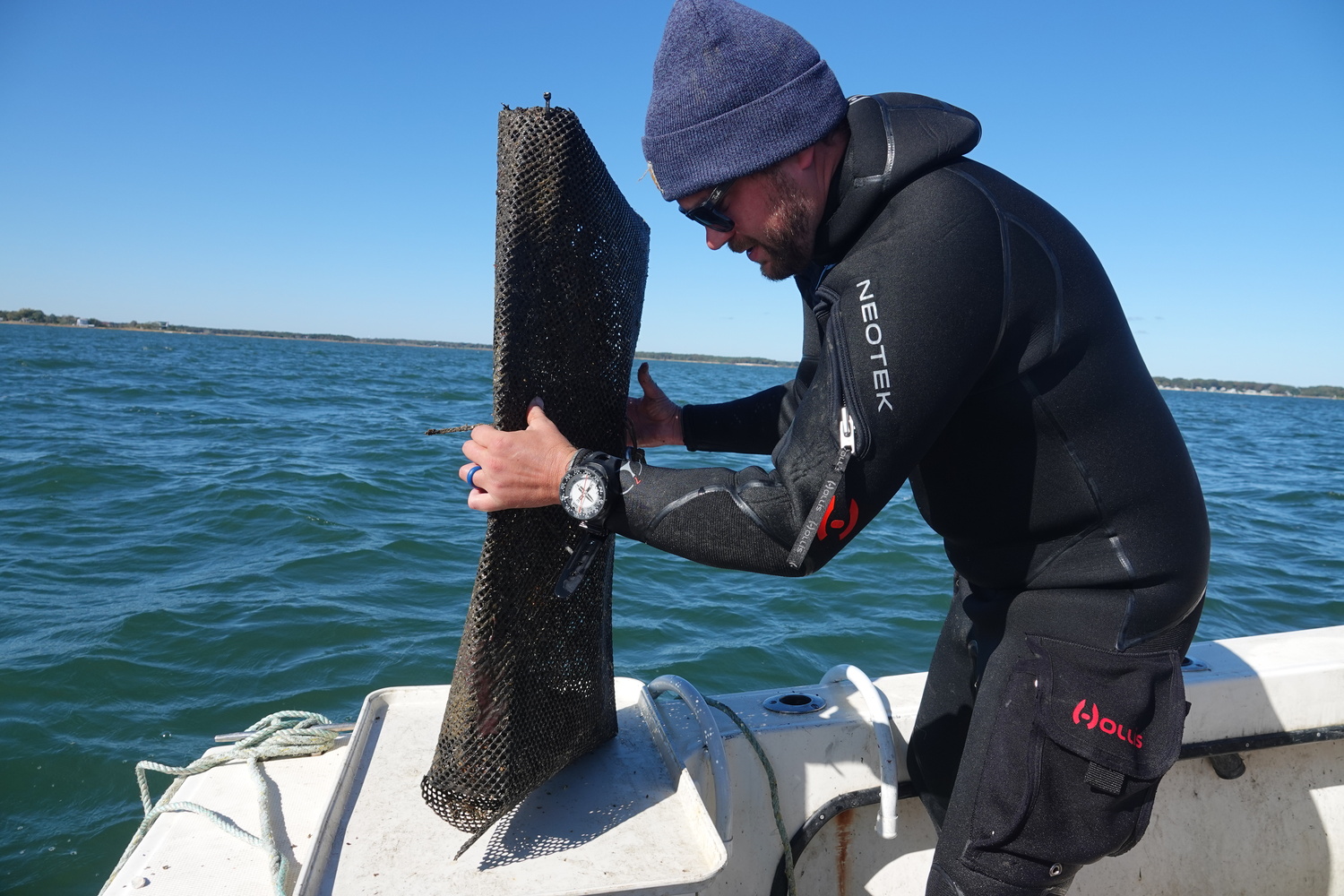
Cornell Cooperative Extension Aquaculture Specialist Harrison Tobi with scallops raised in protective cages in Flanders Bay as part of the CCE Marine Program's efforts to study survivability of different bay scallop lineages in the Peconics, where a parasite and warming waters have caused massive die-offs in recent years. MICHAEL WRIGHT
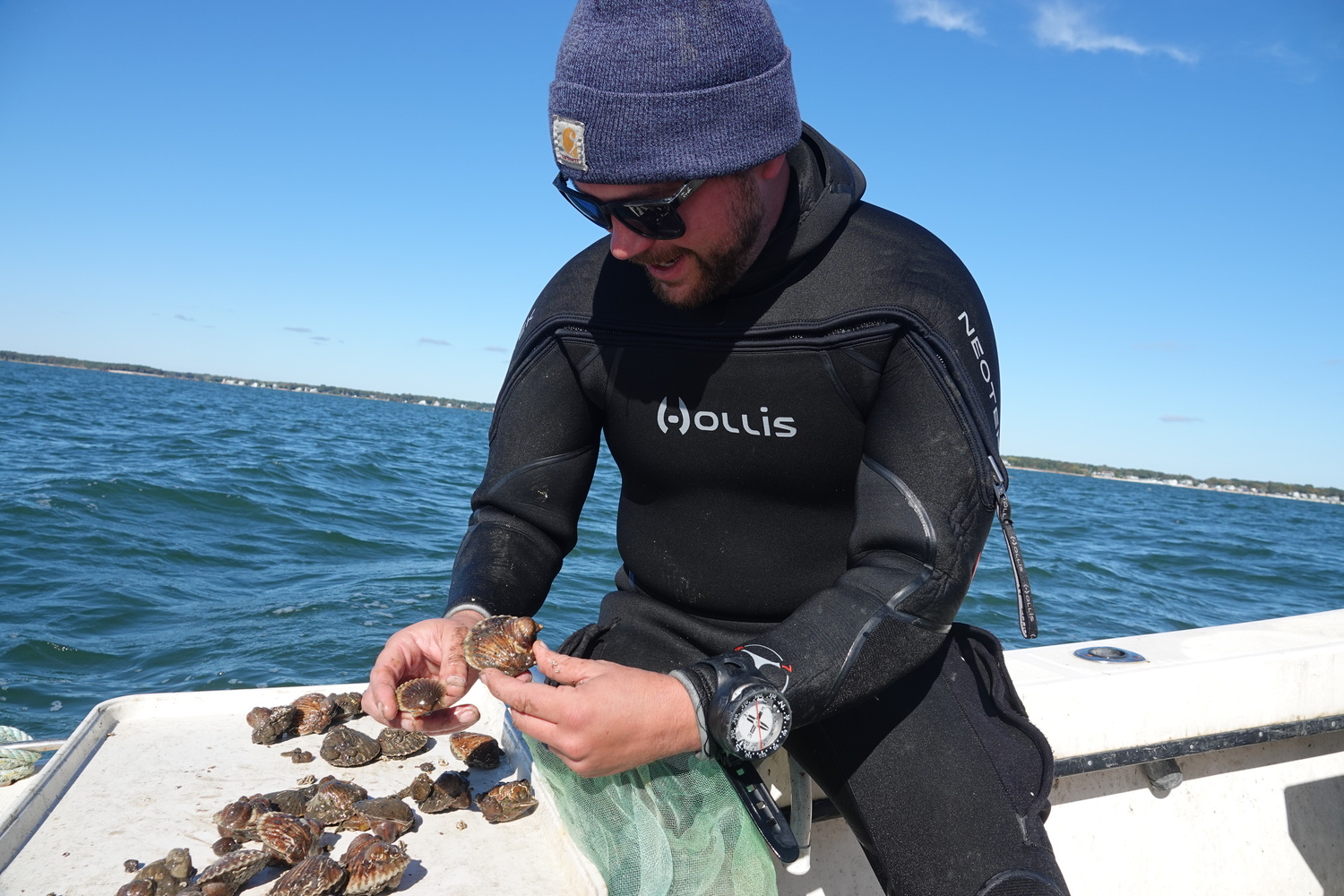
Cornell Cooperative Extension Aquaculture Specialist Harrison Tobi with scallops raised in protective cages in Flanders Bay as part of the CCE Marine Program's efforts to study survivability of different bay scallop lineages in the Peconics, where a parasite and warming waters have caused massive die-offs in recent years. MICHAEL WRIGHT
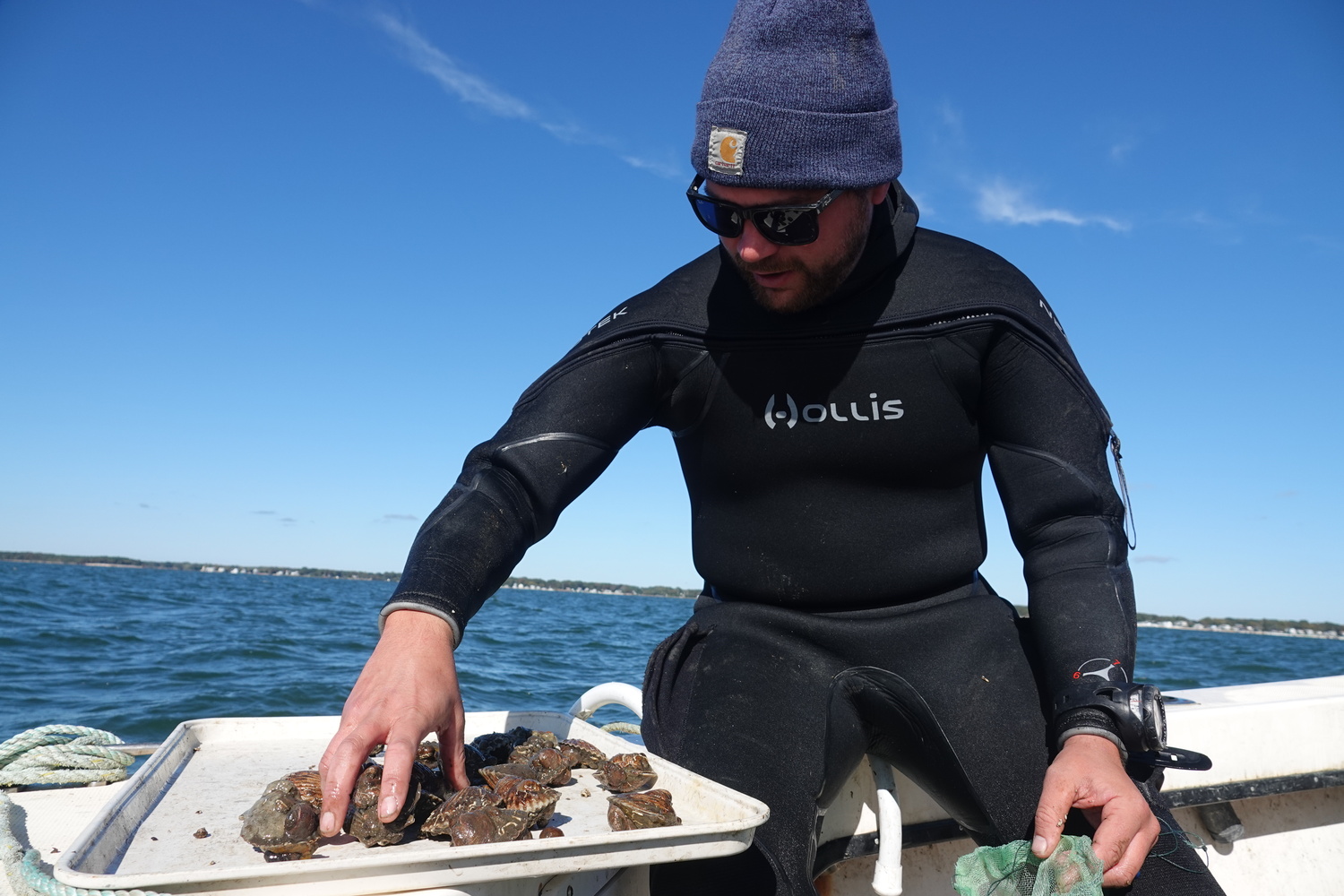
Cornell Cooperative Extension Aquaculture Specialist Harrison Tobi with scallops raised in protective cages in Flanders Bay as part of the CCE Marine Program's efforts to study survivability of different bay scallop lineages in the Peconics, where a parasite and warming waters have caused massive die-offs in recent years. MICHAEL WRIGHT
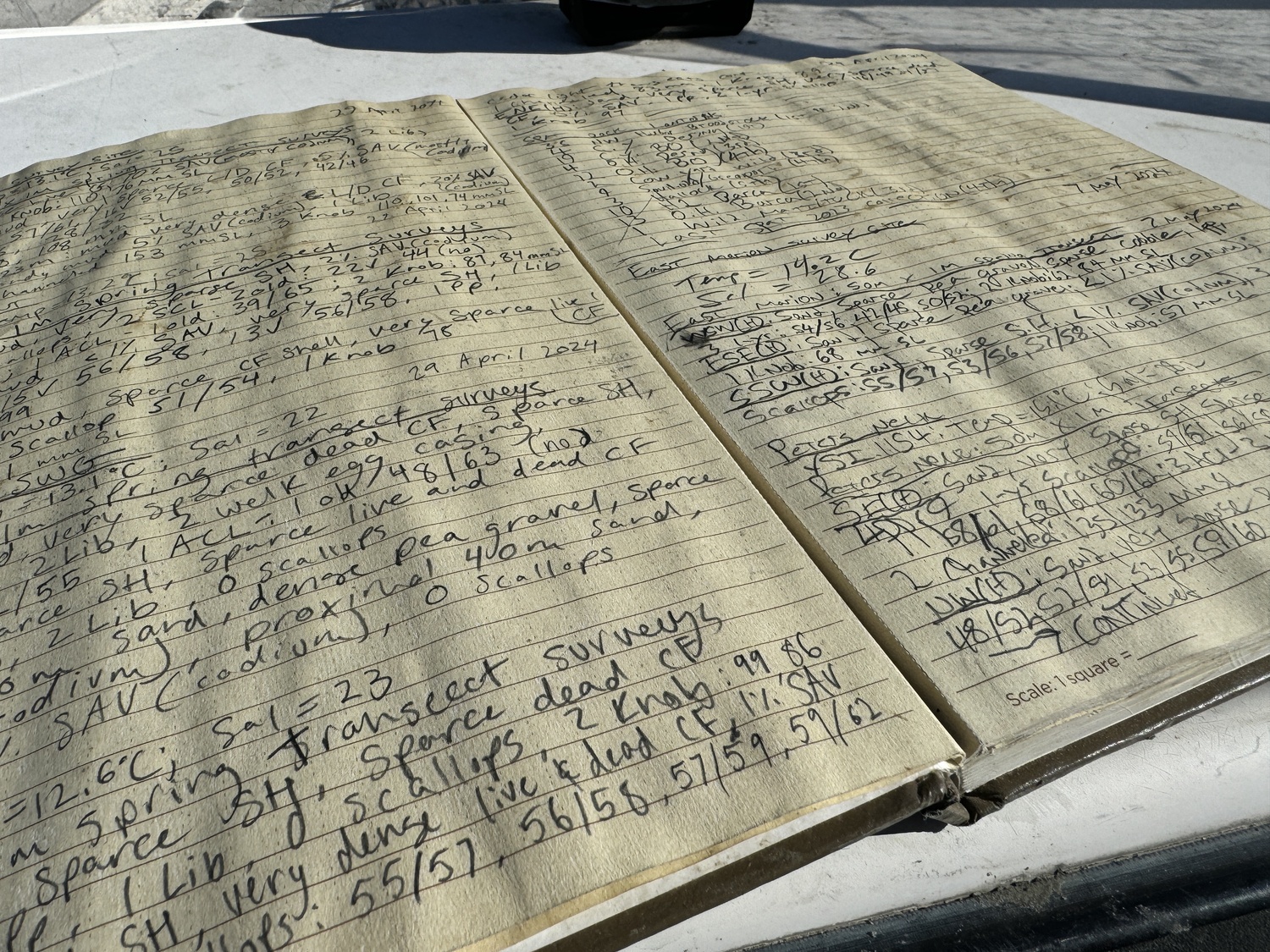
The scientists keep meticulous track of the growth and mortality rates of each strain of scallop raised in separate cages on the bay bottoms at several locations throughout the Peconics. MICHAEL WRIGHT
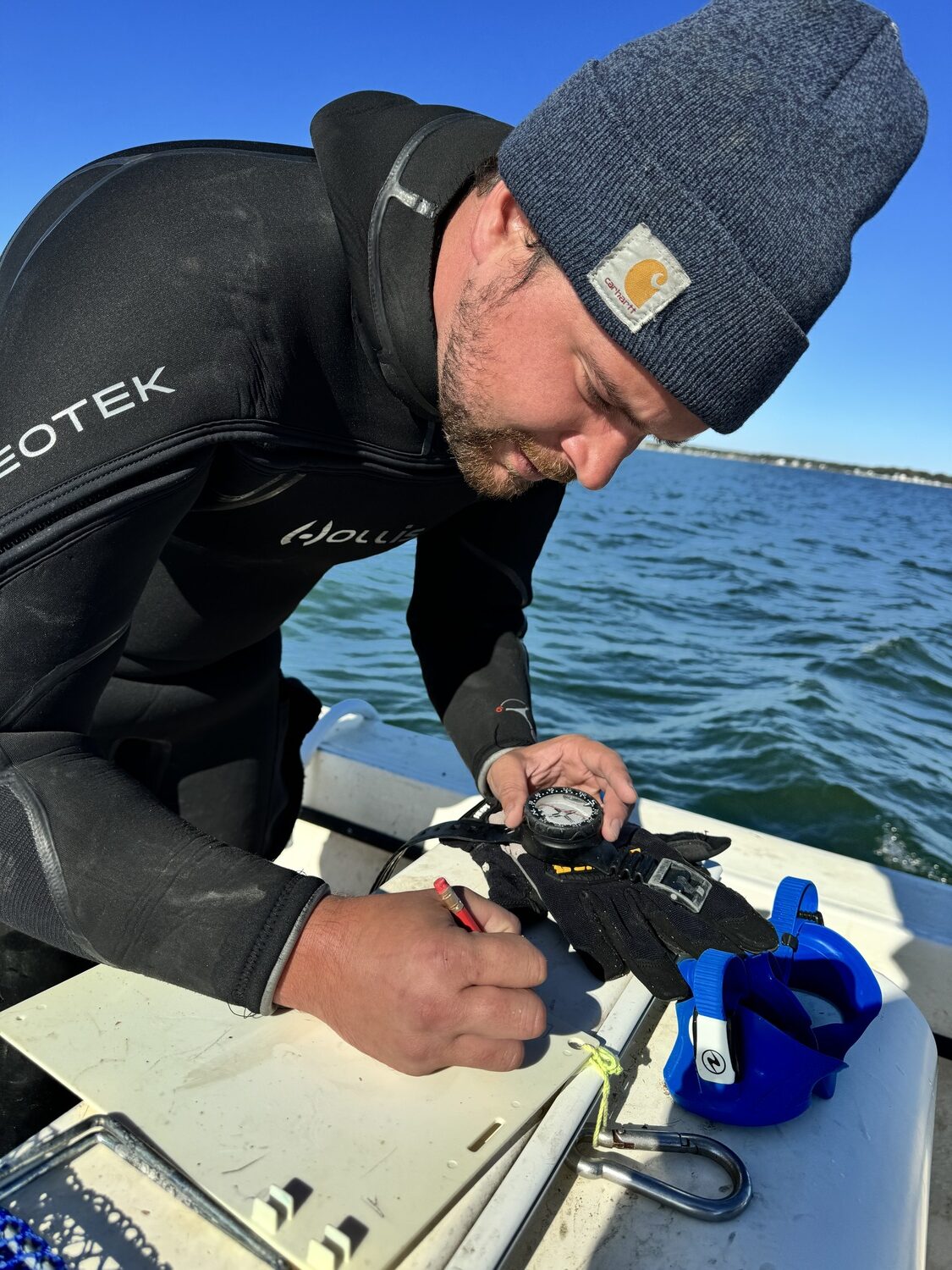
The scientists keep meticulous track of the growth and mortality rates of each strain of scallop raised in separate cages on the bay bottoms at several locations throughout the Peconics. MICHAEL WRIGHT

Brooke Del Prete and Mike Bunn with bags of scallops that marine biologists from the Cornell Cooperative Extension are using to track mortality and survivability rates of various strains of bay scallops in the Peconic Estuary. MICHAEL WRIGHT
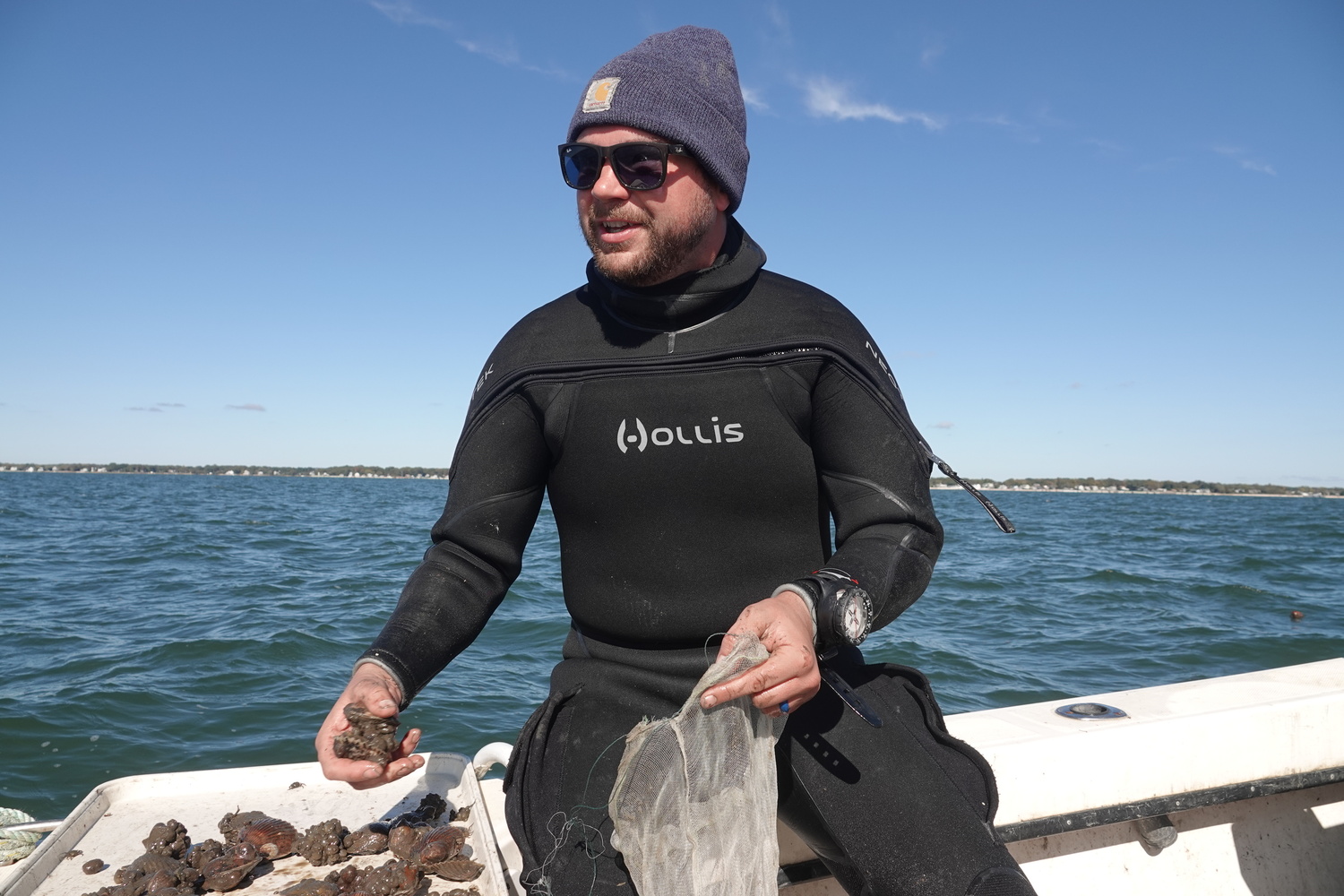
Cornell Cooperative Extension Aquaculture Specialist Harrison Tobi with scallops raised in protective cages in Flanders Bay as part of the CCE Marine Program's efforts to study survivability of different bay scallop lineages in the Peconics, where a parasite and warming waters have caused massive die-offs in recent years. MICHAEL WRIGHT
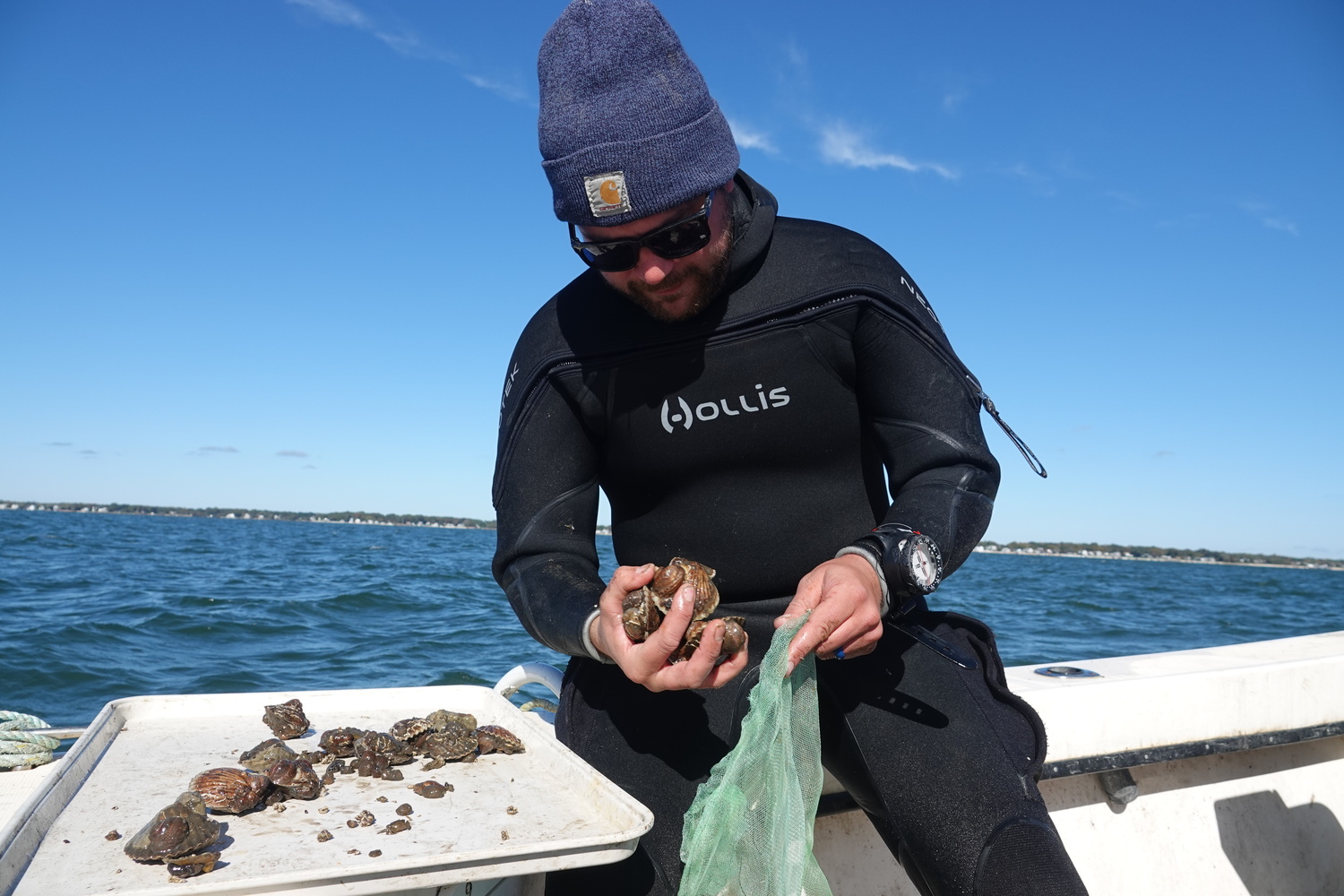
Cornell Cooperative Extension Aquaculture Specialist Harrison Tobi with scallops raised in protective cages in Flanders Bay as part of the CCE Marine Program's efforts to study survivability of different bay scallop lineages in the Peconics, where a parasite and warming waters have caused massive die-offs in recent years. MICHAEL WRIGHT
We're happy you are enjoying our content. You've read 4 of your 7 free articles this month. Please log in or create an account to continue reading.
Login / Create AccountWe're happy you are enjoying our content. Please subscribe to continue reading.
Subscribe Already a Subscriber



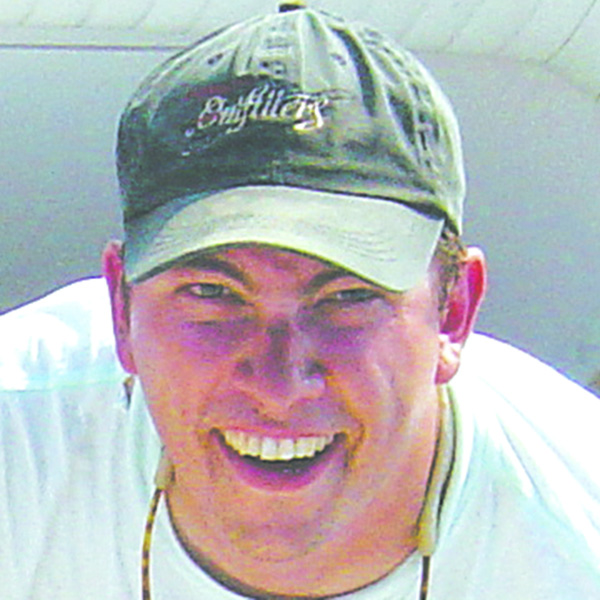 Michael Wright on Oct 23, 2024
Michael Wright on Oct 23, 2024